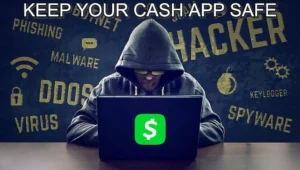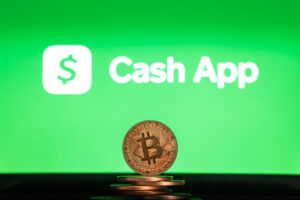Can someone hack your Cash App with your tag? It’s a question that’s been buzzing around, sparking concern among users of the popular mobile payment service. This post will delve into this topic to uncover the truth behind the security of your Cash App tag.
It’s unlikely that someone can directly hack your Cash App account solely with your tag (username). Cash App employs strong security measures such as encryption and two-factor authentication to protect user accounts.
However, it’s essential to stay vigilant against phishing attempts, where scammers may try to trick you into revealing your account information or login credentials through fake websites or messages. Always verify requests for sensitive information and enable all available security features to safeguard your Cash App account.
How to secure your cashapp from fraud and scam
Potential Risks of Hacking with Cash App Tags

Hacking with Cash App tags can present several risks, both for users of the platform and potentially for the wider financial system. Here are some potential risks:
- Fraudulent Transactions: If a hacker gains unauthorized access to a Cash App account or manipulates Cash App tags, they could initiate fraudulent transactions, such as sending money to their own accounts or making unauthorized purchases.
- Identity Theft: Hacking Cash App tags could involve stealing personal information associated with the account, leading to potential identity theft issues for the affected users.
- Financial Loss: Users could suffer financial losses if hackers gain access to their Cash App accounts and transfer funds out of the account without authorization. This could include not only the loss of funds stored in the Cash App account but also any linked bank accounts or credit/debit cards.
- Privacy Breaches: Hacking Cash App tags could compromise users’ privacy by exposing their transaction history, personal information, and other sensitive data stored within the app.
- Reputation Damage: Both individuals and Cash App itself could suffer reputational damage if hacking incidents occur frequently or on a large scale. Users may lose trust in the platform’s security measures, leading to decreased usage and negative publicity.
- Regulatory Concerns: If hacking incidents involving Cash App tags become widespread, regulatory authorities may intervene, leading to increased scrutiny, fines, or even legal actions against Cash App and its parent company, Square Inc.
- Systemic Risks: If hacking incidents with Cash App tags lead to widespread financial fraud or disruptions in the broader financial system, it could have cascading effects on consumer confidence, financial stability, and trust in digital payment platforms.
The risks associated with hacking Cash App tags underscore the importance of robust security measures, user vigilance, and prompt response to security incidents by both users and the platform provider.
Can someone hack your cash app with your tag?
It’s important to note that using a Cash App tag doesn’t grant access to someone’s account or provide any sensitive information about the account holder. Cash App transactions are typically protected by security measures such as passwords, PINs, and possibly two-factor authentication (2FA) if enabled by the account holder.
That said, it’s crucial to safeguard your Cash App account credentials, including your password and any associated email or phone number used for login. Avoid sharing this information with others, and be cautious of phishing attempts or other scams that may attempt to trick you into revealing sensitive information.
While Cash App tags themselves may not directly lead to hacking, it’s still important to exercise caution and practice good security hygiene to protect your account from unauthorized access or fraudulent activity.
Factors Contributing to Vulnerabilities
Several factors can contribute to vulnerabilities in the context of Cash App tags and similar digital payment systems. Below are the vulnerabilities that can contribute:
- Weak Authentication Mechanisms: If Cash App or its associated services have weak authentication mechanisms, such as easily guessable passwords or insufficient multi-factor authentication options, it can make it easier for hackers to gain unauthorized access to accounts.
- Inadequate Encryption: Insufficient encryption of data transmitted between users’ devices and Cash App servers can expose sensitive information to interception by malicious actors.
- Software Bugs and Flaws: Like any software, Cash App and its underlying infrastructure may contain bugs or vulnerabilities that could be exploited by hackers to gain unauthorized access or perform malicious activities.
- Social Engineering: Hackers may use social engineering techniques to trick Cash App users into revealing their login credentials or other sensitive information, such as through phishing emails, fake customer support calls, or fraudulent websites.
- Insider Threats: Employees or contractors with access to Cash App’s systems and data could abuse their privileges to carry out unauthorized activities or leak sensitive information.
- Third-party Integration Risks: If Cash App integrates with third-party services or APIs, vulnerabilities in those integrations could potentially be exploited by hackers to compromise the security of the entire system.
- Lack of Security Updates: Failure to promptly apply security patches and updates to Cash App’s software and infrastructure can leave it vulnerable to known exploits and attacks.
- Data Breaches: If Cash App’s databases or servers are compromised in a data breach, hackers may gain access to sensitive user information, such as account credentials or transaction history.
- Insecure Development Practices: Poor coding practices or insufficient security testing during the development process can introduce vulnerabilities into Cash App’s software that may be exploited by attackers.
- User Error: Users themselves can inadvertently contribute to vulnerabilities by using weak passwords, falling for phishing scams, or otherwise failing to follow recommended security practices.
Addressing these factors requires a comprehensive approach to cybersecurity, including regular security audits, robust encryption protocols, ongoing employee training, prompt patch management, and proactive measures to mitigate social engineering attacks.
Measures to Protect Against Hacking

To protect against hacking and enhance security when using Cash App or similar digital payment systems, users can take several measures:
- Strong Passwords: Use strong, unique passwords for Cash App and associated accounts. Avoid using easily guessable passwords and consider using a reputable password manager to generate and store complex passwords securely.
- Enable Two-Factor Authentication (2FA): Enable two-factor authentication wherever possible, such as using SMS codes, authenticator apps, or hardware tokens. This adds an extra layer of security to your account and makes it harder for hackers to gain unauthorized access.
- Keep Software Updated: Ensure that Cash App and any associated software, including operating systems and security software, are kept up-to-date with the latest security patches and updates. Regularly check for and apply updates to minimize the risk of exploitation of known vulnerabilities.
- Beware of Phishing: Be cautious of unsolicited emails, text messages, or phone calls claiming to be from Cash App or related services. Avoid clicking on links or providing personal information unless you can verify the legitimacy of the communication through official channels.
- Use Secure Networks: Avoid conducting sensitive transactions, such as logging into Cash App or making payments, over public or unsecured Wi-Fi networks. Instead, use a trusted and secure network, such as your home Wi-Fi or a cellular connection.
- Monitor Account Activity: Regularly review your Cash App account activity and transaction history for any suspicious or unauthorized transactions. Report any unauthorized activity to Cash App support immediately.
- Secure Device Access: Secure your devices with strong passwords, PINs, or biometric authentication methods. Ensure that only authorized users have access to your devices, and consider using encryption to protect sensitive data stored on your devices.
- Educate Yourself: Stay informed about common cybersecurity threats and best practices for staying safe online. Educate yourself about the security features and settings available in Cash App and other digital payment platforms to make informed decisions about your security.
- Use Official Channels: Only download Cash App or related apps from official app stores, such as the Apple App Store or Google Play Store. Avoid sideloading apps from unknown sources, as they may contain malware or other security risks.
- Report Security Concerns: If you encounter any security issues or suspicious activity while using Cash App, report them to Cash App support or relevant authorities promptly. Prompt reporting can help prevent further security incidents and protect other users.
By following these measures, users can significantly reduce their risk of falling victim to hacking and enhance the overall security of their Cash App accounts and transactions.
Best Practices for Secure Cash App Usage

Secure Cash App usage involves adopting best practices to protect your account, personal information, and financial transactions. Here are some recommended practices:
- Enable Two-Factor Authentication (2FA): Activate 2FA for your Cash App account to add an extra layer of security. This typically involves receiving a one-time code via SMS or using an authenticator app to verify your identity when logging in.
- Use Strong Passwords: Create a strong, unique password for your Cash App account. Avoid using easily guessable passwords and consider using a reputable password manager to generate and store complex passwords securely.
- Verify Transactions: Always double-check transaction details before confirming payments or transfers on Cash App. Verify recipient information, amounts, and any associated fees to ensure accuracy and prevent unintended transfers.
- Keep Software Updated: Regularly update the Cash App and any associated software, including your device’s operating system and security software, to patch known vulnerabilities and enhance security.
- Be Wary of Phishing: Be cautious of unsolicited emails, text messages, or phone calls claiming to be from Cash App or related services. Avoid clicking on links or providing personal information unless you can verify the legitimacy of the communication through official channels.
- Secure Device Access: Secure your devices with strong passwords, PINs, or biometric authentication methods. Avoid sharing your device with others, and enable auto-lock features to require authentication after periods of inactivity.
- Monitor Account Activity: Regularly review your Cash App account activity and transaction history for any suspicious or unauthorized transactions. Report any unauthorized activity to Cash App support immediately.
- Use Secure Networks: Avoid conducting sensitive transactions, such as logging into Cash App or making payments, over public or unsecured Wi-Fi networks. Instead, use a trusted and secure network, such as your home Wi-Fi or a cellular connection.
- Protect Personal Information: Avoid sharing sensitive personal information, such as your Cash App login credentials or banking details, with anyone. Cash App support representatives will never ask for this information unsolicited.
- Report Suspicious Activity: If you notice any suspicious activity or unauthorized transactions on your Cash App account, report it to Cash App support immediately. Prompt reporting can help prevent further unauthorized access and protect your account.
By following these best practices, you can enhance the security of your Cash App usage and reduce the risk of falling victim to fraudulent activities or unauthorized access.
Conclusion
While sharing your Cash App tag may facilitate transactions, it alone does not grant access to your account. However, it’s imperative to remain vigilant against potential security threats and safeguard your account credentials.
Practicing good security habits, such as using strong passwords and being cautious of phishing attempts, can help mitigate the risk of unauthorized access or fraudulent activity. So, to answer the question Can someone hack your Cash App with your tag? Is simple as no. But maintaining security measures is crucial to ensure the safety of your account.
